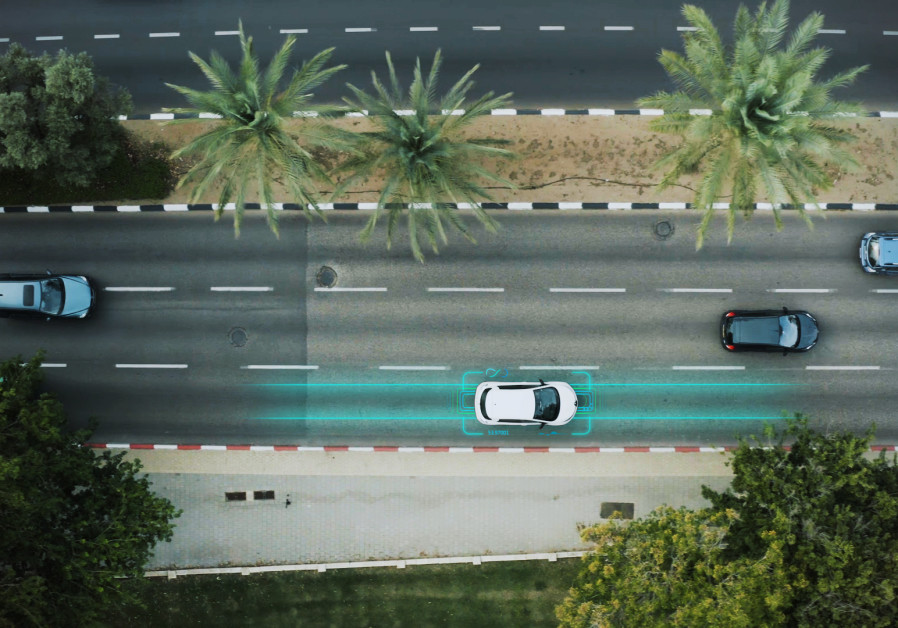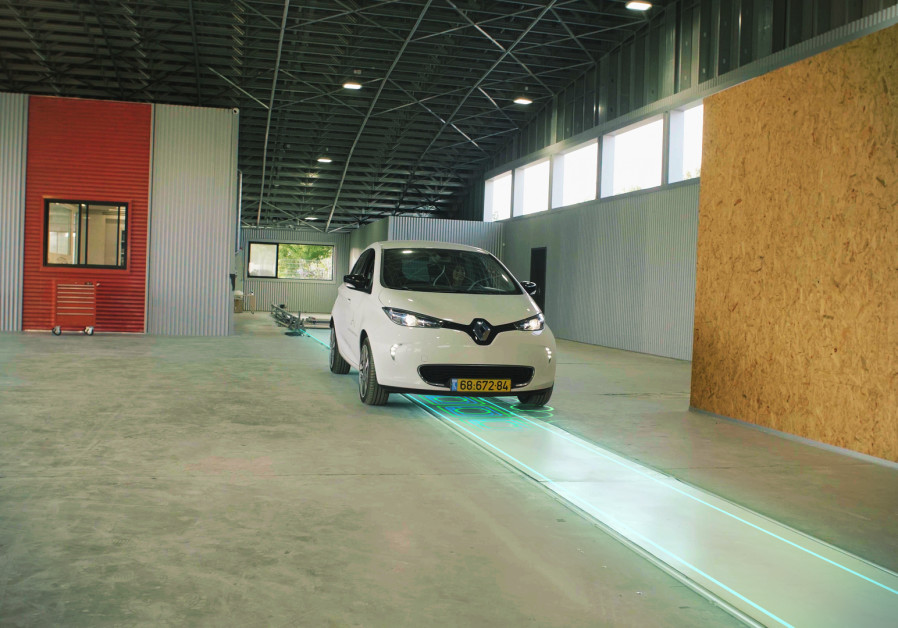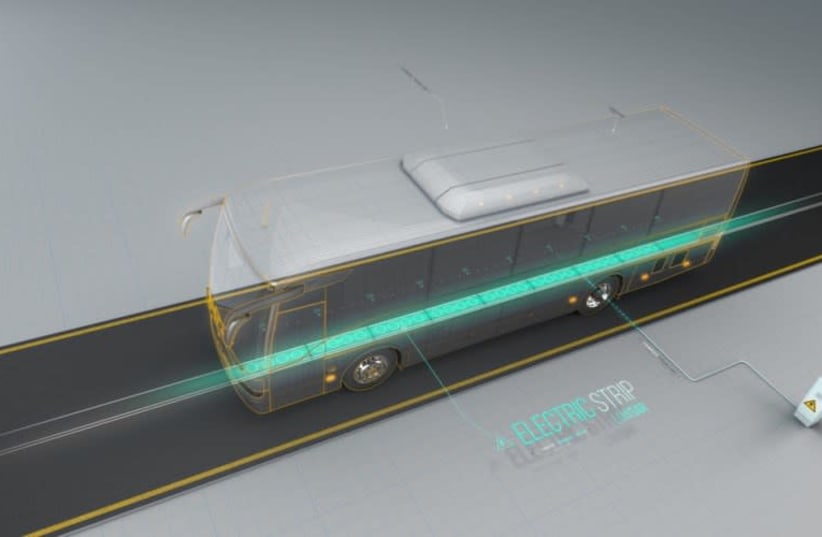Wireless vehicle charging technology developed by Israel-based Electreon Wireless has been selected by the Swedish Transport Administration for the construction of the world’s first dynamic electric road system. The public-private initiative based on Electreon’s technology, built by Smart Road Gotland, will be the first in the world to charge inductively electric trucks and buses while in motion.
Publicly traded Electreon, headquartered in Beit Yanai, is a global leader in dynamic wireless power transfer (DWPT) technology, installing its unique copper coil technology underneath the road surface, making it invisible to road users and enabling a steady electricity flow by supplying power as vehicles drive.
The project will include the construction of 1.6 km. of electric road as part of a 4.1 km. route connecting Visby Airport to the city of Visby (pop. 24,000), located on the Baltic Sea island of Gotland.
The project will cost approximately $12.5 million and is set to benefit from almost $10m. of governmental funding.
The electric bus will be used as a fully-functional public shuttle and the electric truck will be evaluated by a professional driver in varied seasonal conditions to ensure that the system is ready for large-scale implementation on Sweden’s highways.
The project constitutes an important strategic step in Stockholm’s plans to implement 2,000 km. of electric highway across the country, enabling the dynamic charging of electric vehicles. The national plan is estimated to be worth $3 billion.

“We, the Swedish Transport Administration, believe that electric roads are an important contribution to reducing CO2 emissions from heavy transportation,” said Jan Pettersson, Swedish Transport Administration program manager.
“Demonstrating and evaluating new technical solutions for electric routes is one of our most important steps in our long-term plan for a potential roll-out of electrified routes on the heavy road network in Sweden.”
Electreon’s solution particularly benefits long-haul, heavy trucks since neither heavy and expensive batteries nor stops for re-charging are required. The technology significantly reduces the need to charge a vehicle’s batteries during the day or overnight. Electreon AB, a wholly-owned Swedish subsidiary of Electreon Wireless, will lead the project.
“We are excited that we have been selected to take part in the Swedish government’s ambitious program to examine and implement electric road technology as a solution to electrify heavy trucks on highways,” said Electreon CEO Oren Ezer.

“The selection of Electreon by the Swedish government after careful filtration testifies to the recognition of the potential of the technology to bring the global electrification revolution to the next critical stage of full implementation.”
In February, Electreon partnered with the Tel Aviv-Jaffa Municipality and Dan Bus Company to launch a first-of-its-kind pilot project to test the economic viability of operating a bus on at least one kilometer of electrified road.
Dan will provide the project with an electric bus that will be converted to work with Electreon’s infrastructure. In December 2017, the Israeli transit company announced the investment of $2.2m. in Electreon.
